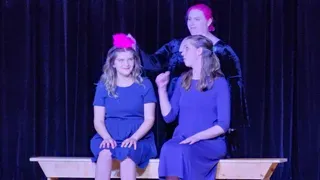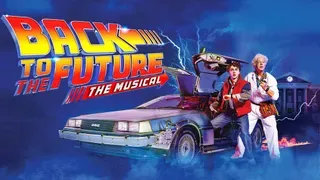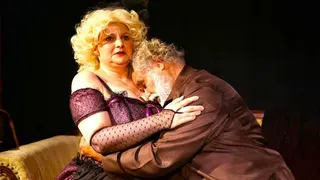July 13, 2009
Outfest LA :: Mississippi Damned
Kevin Taft READ TIME: 3 MIN.
Escaping our past is, in many ways, our own personal destiny.
No matter how good our upbringing is, there's always something more that we want: Things we've learned that we want to change or avoid so as to not live as a result of the past. But for those people with troubled childhoods, escape is often the hardest part.
This is the theme of the new drama Mississippi Damned by writer/director Tina Mabrey ("The Itty Bitty Titty Committee").
The semi-autobiographical story tells the tale of three black kids growing up in the deep south in the mid 1980's.
Told through the eyes of 8-year-old Kari, her teenage lesbian sister Leigh, and their 15-year-old cousin Sammy, we are immediately sucked into a life filled with parents and relatives struggling to make ends meet, substance problems, as well as various forms of physical and sexual abuse.
While the three kids are entwined in the travails of the adults around them, it is through their innocent eyes that they watch their families make terrible choices and as a result, fall apart.
While the adults flounder with money problems and constant infighting, the kids attempt to stand apart from them, desperately searching for their place.
But no matter how much they try to separate themselves from the drama, it affects all three in ways that will forever change their futures.
Kari (Kylee Russell) is a budding pianist who watches from afar until a moment of sexual abuse that forever scars the small bit of innocence she has left.
Her sister Leigh (Chasity Hammitte) has accepted her sexuality and tries to carry on a relationship with a friend from school, but with homophobia rampant, the relationship is doomed before it ever began.
Sammy (Malcolm David Kelley) is a promising basketball player who resorts to sexual favors in order to get money for a trip with his team that a college scout will be attending.
And all the while, they deal with a lack of parenting and emotional support from the people they should be able to depend on.
As things become more and more dire, the film shifts 12 years into the future where we see just what has become of these three youths and how their pasts have affected their choices.
Family illness, imprisonment, and a constant lack of cash flow have not been kind to the adults surrounding them, and the burden weights heavily.
While Sammy has gone on to great success, the silent abuse he suffered has caused him to act in ways both horrific and irreparable.
Leigh's dreams of leaving her homophobic town have died, along with her spirit. This leaves Kari to push beyond the pain she has suffered to find a way out of her town and away from the past that will never be far behind her.
Directed and written by Mabry, the script doesn't hit a false note and the direction is flawless. Her cinematographer, Bradford Young, employs a hand-held documentary style that shows a sure hand without being flashy.
The performances by every member of the cast are first-rate, especially from the handful of adult actors, as well as Tessa Thompson who plays Kari at age twenty.
Best known for her role as Jackie on the hit series "Veronica Mars", she is the touchstone of the movie and the one we most root for.
What's troubling about the film is how relentlessly depressing it is. Not a scene goes by without some sense of dire conflict that usually involves intense anger and yelling.
For the first hour, it seems like the two-hour running time will be a chore to get through, but amazingly, Mabry sucks us into these lives and we start to really care what happens to them.
They might be miserable people, but we understand how they got to be where they are.
-----------------
Now showing at OutFest LA
Kevin Taft is a screenwriter/critic living in Los Angeles with an unnatural attachment to 'Star Wars' and the desire to be adopted by Steven Spielberg.







